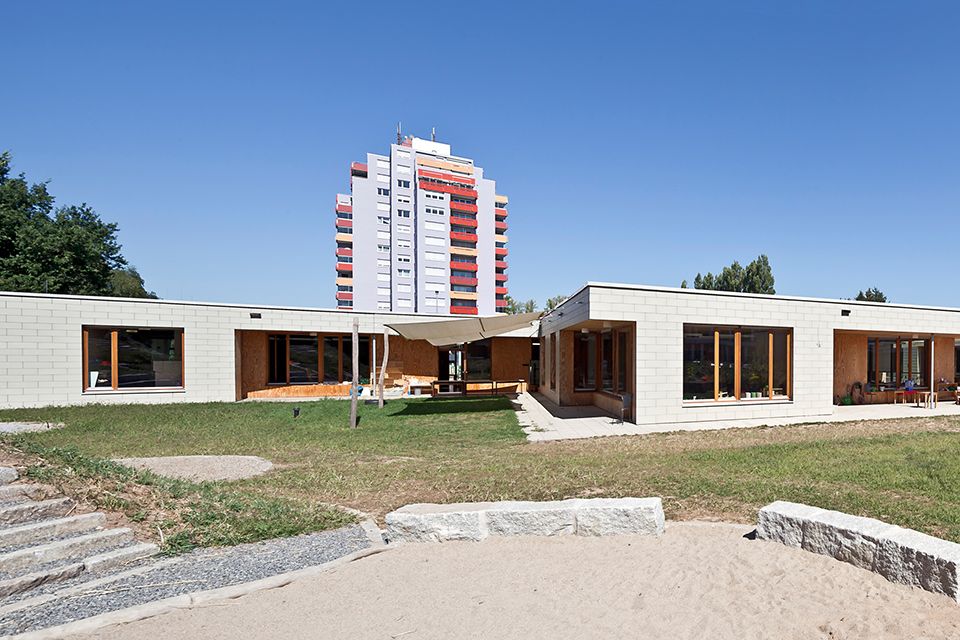
Every child learns from the start and does it all the time. It is born with the inner urge to find out how everything works. Children continuously expand their knowledge and skills, completely by the way and of course. A child learns particularly intensively in the first years of life; at the age of three, it has already learned about 70% of what it does for later life needs.
Children learn with ease! Children play and learn closely. Playing alone or with others is the most elementary form of dealing with the world to set apart and express yourself.


Children learn independently. Every child is busy with different topics at different times and develops their own behavior. The children’s individual developments and potentials therefore require different ways of promoting them.
“The child is not a vessel that you can fill with any content. The sense of childlike learning is not in the end product, but in the learning process itself. "(Christine Weber)
Detours and disappointments are just as much a part of the learning experience as success and recognition. The child can only take in what his level of development enables him. "The grass does not grow faster if you pull on it" – says an African saying. Or to stay with our picture of the seed, no gardener can determine the exact time

to predict or bring about flowering and if he tries to open a bud by force to make it bloom, he will destroy it. For us, this means that we try to offer the children a variety of learning opportunities, but do not force any child to offer them.

On the other hand, we also support the children in sticking to one thing and practicing perseverance, for example, to finish a begun puzzle before the child turns to a new job. We want to arouse children’s curiosity, the joy of discovering and trying out life and the world. We want to encourage and motivate the children and also recognize small achievements. We are there for you wherever you need help and support. We offer the children a variety of creative and artistic forms of expression, e.g .:
- Paint with brushes and paints or simply with fingers on the large painting wall
- Print with cork, potatoes or sponges
- Kneading, pottery, slushing with water and sand
- beautiful >For the development of fine motor skills, the children also have a range of various pegging games, puzzles, pearls, little hammer games, etc. available.


We support the gross motor area in the room by dancing, climbing, sliding, hopping and all kinds of movement games. Outside, the children can ride a bobby car, tricycle, scooter or balance bike, swings, slides, climb, balance, "climb", etc.
RELATED ITEMS
-

Teach children to play the piano, superprof de
July 18, 2018 ∙ Providing your child with piano lessons for 8 minutes is probably one of the best things you can do during his or her studies…
-

Our offer: kindergarten and primary school
Crèche, children’s home elementary school Living and learning under one roof The Montessori Center Ortenau e.V. (MZO) was founded in Offenburg in September 2009 by…
-

Children with disabilities – Elbkinder Association of Hamburg Kitas
Site for children and parents The offer of our daycare centers The offer of our daycare centers Special offers Financing Many of our daycare centers also look after children…
-

Wise sayings about – education
You can’t beat anything into children, but you can caress a lot. Astrid Lindgren With a childhood full of love you can go half a life through…
